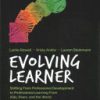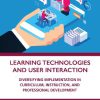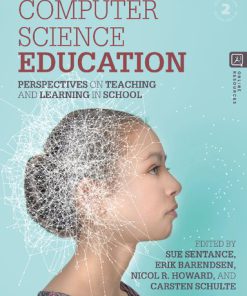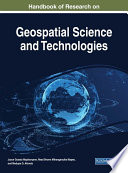Handbook of Research on Equity in Computer Science in P 16 Education 1st Edition by Jared Keengwe 9781799847410 1799847411
$50.00 Original price was: $50.00.$25.00Current price is: $25.00.
Handbook of Research on Equity in Computer Science in P 16 Education 1st Edition Jared Keengwe – Ebook Instant Download/Delivery ISBN(s): 9781799847397, 179984739X, 9781799847410, 1799847411
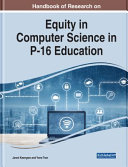
Product details:
- ISBN 10: 1799847411
- ISBN 13: 9781799847410
- Author: Jared Keengwe
The growing trend for high-quality computer science in school curricula has drawn recent attention in classrooms. With an increasingly information-based and global society, computer science education coupled with computational thinking has become an integral part of an experience for all students, given that these foundational concepts and skills intersect cross-disciplinarily with a set of mental competencies that are relevant in their daily lives and work. While many agree that these concepts should be taught in schools, there are systematic inequities that exist to prevent students from accessing related computer science skills. The Handbook of Research on Equity in Computer Science in P-16 Education is a comprehensive reference book that highlights relevant issues, perspectives, and challenges in P-16 environments that relate to the inequities that students face in accessing computer science or computational thinking and examines methods for challenging these inequities in hopes of allowing all students equal opportunities for learning these skills. Additionally, it explores the challenges and policies that are created to limit access and thus reinforce systems of power and privilege. The chapters highlight issues, perspectives, and challenges faced in P-16 environments that include gender and racial imbalances, population of growing computer science teachers who are predominantly white and male, teacher preparation or lack of faculty expertise, professional development programs, and more. It is intended for teacher educators, K-12 teachers, high school counselors, college faculty in the computer science department, school administrators, curriculum and instructional designers, directors of teaching and learning centers, policymakers, researchers, and students.
Table contents:
Chapter 1: Providing Near-Peer Mentorship to Increase Underrepresented Minority Youth Participation in Computing
Chapter 2: The Snowball Effect
Chapter 3: Female Enrolment in High School Computer Science Courses
Chapter 4: Educational Robotics for Creating Effective Computer Science Learning for All
Chapter 5: English Learners (EL) and Computer Science (CS) Learning
Chapter 6: Minority Students in Computer Science
Chapter 7: Teacher Preparation in Computer Science Pre-Service and Inservice Programs
Chapter 8: Teacher-Designed Games
Chapter 9: Role of Mentorship and Reflection in Leading Learning Through Making
Chapter 10: Behavioral Innovations in Computer Science and Computational Thinking in P-16 Education
Chapter 11: The Perceived Appropriateness of Digital Games From ELL Teachers
Chapter 12: A Systematic Review of Gamification Within E-Learning
Chapter 13: Flipping the Mathematics Instruction
Chapter 14: Strategies for Managing Cognitive Load and Enhancing Motivation in E-Learning
Chapter 15: Leveraging VR/AR/MR and AI as Innovative Educational Practices for “iGeneration” Students
Chapter 16: A Conceptual Educational Data Mining Model for Supporting Self-Regulated Learning in Online Learning Environments
People also search:
handbook of research on educational leadership for equity and diversity
handbook of research on educational communications and technology
handbook of research on stem education
handbook of research in education finance and policy
handbook of research in science education
You may also like…
Computers - Computer Science
Computer Science Principles: The Foundational Concepts of Computer Science, 4th Edition Kevin P Hare
Engineering - Telecommunications
Education Studies & Teaching - Educational Theory
Education Studies & Teaching - School Education & Teaching
Computer Science in K 12 An A To Z Handbook on Teaching Programming Ed.: Shuchi Grover
Uncategorized
Handbook of Research on Integrating ICTs in STEAM Education 1st Edition Stefanos Xefteris (Editor)


